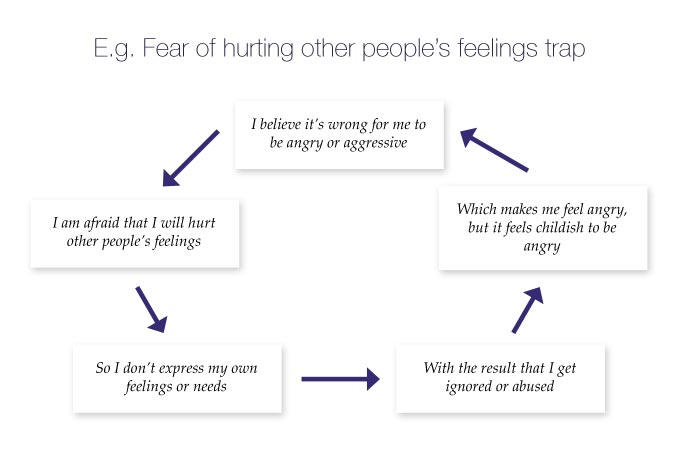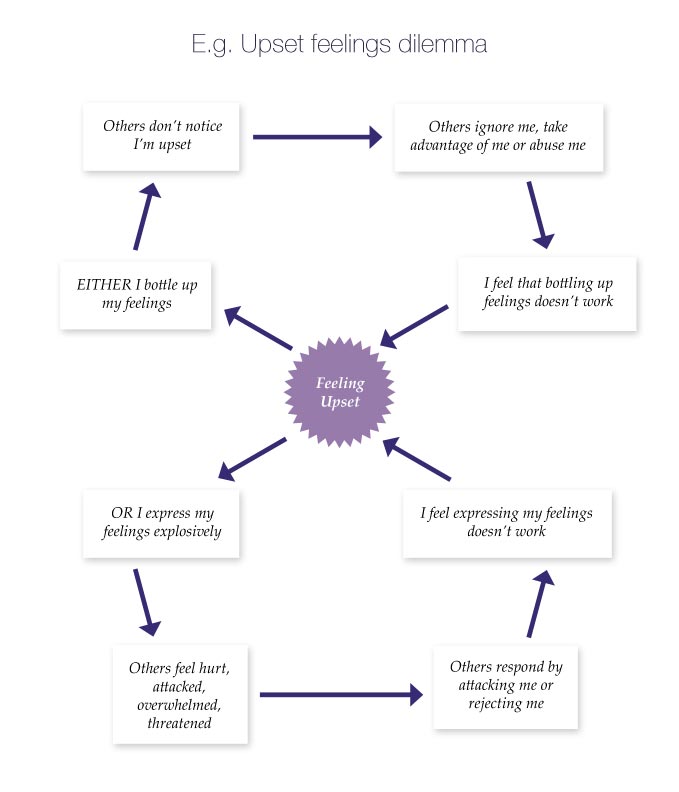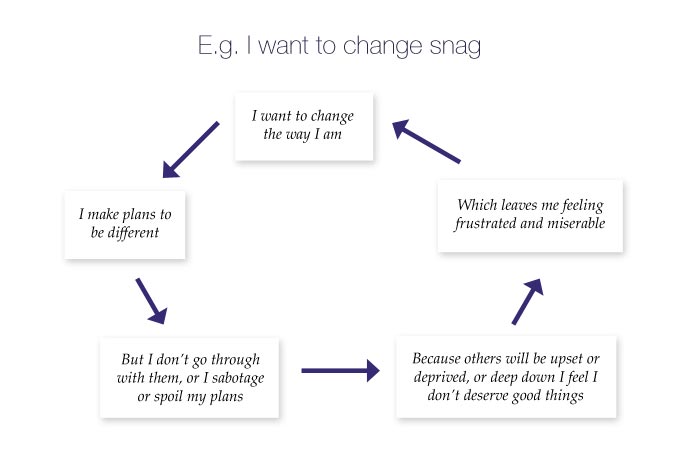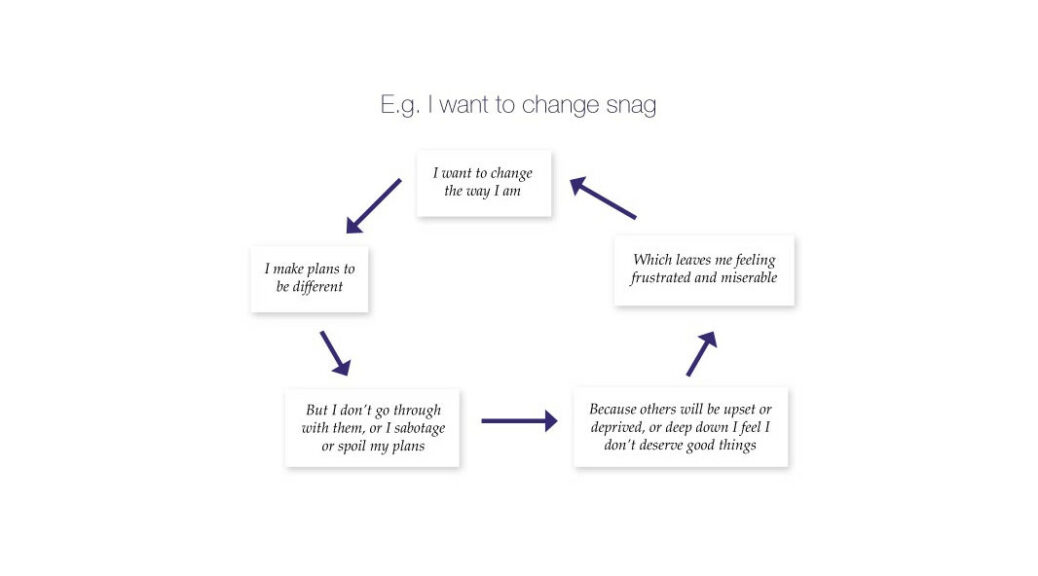There are certain patterns of thinking and acting that don’t help us achieve what we want, but which are hard to change. When Tony Ryle first developed CAT, he identified three main patterns of problems. These seemed to keep people stuck and unable to change their ideas or behaviour. He called them Traps, Dilemmas and Snags. They are included in the ‘Psychotherapy File’ which is often used at the beginning of therapy. Completing this and talking it through with your therapist can help you get clear about what patterns lead to problems for you, and how they operate. Sometimes you and your CAT therapist will spot these patterns without using the Psychotherapy File.
Examples of each are given below:
Traps
Traps are things we cannot escape from. Certain kinds of thinking and acting result in a ‘vicious circle’. However hard we try, things seem to get worse instead of better. Trying to deal with feeling bad about ourselves, we think and act in ways that seem to confirm these bad feelings.
In Talk Yourself Better, Elizabeth Wilde McCormick gives an example:
“You might feel, for example, that nobody ever listens to you. As a result, you stop talking about how you feel but this makes you miserable and isolated.
Others might notice this and ask what’s wrong, but you don’t tell them because you don’t think they’ll listen, which keeps the cycle going.”
Sherine, A. (2018) Talk Yourself Better: a confused person’s guide to therapy, counselling and self help (page 39)
Another example on the fear of hurting other people’s feelings, is shown below as a cycle that might be drawn out in a CAT diagram.

Dilemmas
We often act in ways we do, even when we are not completely happy with the result. This is often because the only other ways we can imagine seem just as bad or even worse. Sometimes we assume connections that will not necessarily happen, for example, “If I do ‘x’ then ‘y’ will follow”. These can be described as either/or, or, if/then dilemmas. It can be hard to imagine a middle ground between these two extremes.
We often don’t realise that we see things like this, and act as if these were the only possible choices. Recognising them is the first step to changing them. 
Snags
Snags are what happen when we say ‘I want to have a better life, or I want to change my behaviour but……’. They can be a form of self-sabotage. Sometimes this comes from how you or your family thought about you when we were young. Perhaps there were expectations in your family or community along the lines of ‘she was always the good child’, or ‘in our community we never ever…’. So a forbidding voice inside can get in the way of pursuing your aim.
Sometimes snags arise from the expectations of important people in our current lives. Perhaps a partner does not want us to change, or is not able to cope with what that change would mean to them. They might put up some opposition to the change you want to make. If the reaction from others puts you in real danger, then your choices may be very limited.
But often others’ resistance is not outright dangerous. Instead it can be more indirect. For example, when you start to get better or more confident, a parent or partner becomes ill or depressed themselves. We all live in systems and networks of relationships. When one part of the system changes, others are forced to change too. This can be stressful and unsettling but can result in things working better once others accept the changes you are making and adapt to them.
You can read more about ways therapy might unsettle relationships in Alison Jenaway’s blog here.
Another blog here outlines how partners and other carers can support you while you are making changes in therapy.
In other cases there might not be opposition from anyone else in your life. Instead you might avoid pleasure or success because of expectations and beliefs about yourself. If rewards come your way, you might not feel you deserve them, or have to ‘pay’ in some way. Often this is because, in your earlier life, you came to feel guilty if things went well. Perhaps you felt the envy of others if you had good luck or success. Maybe you felt responsible, unreasonably, for things that went wrong in the family.
Sometimes we are not very aware of such patterns until talking and thinking about them in therapy. CAT aims to help you notice how this sort of pattern stops you getting on with your life. Recognising snags can help you learn to accept your right to a better life and begin to claim it.

